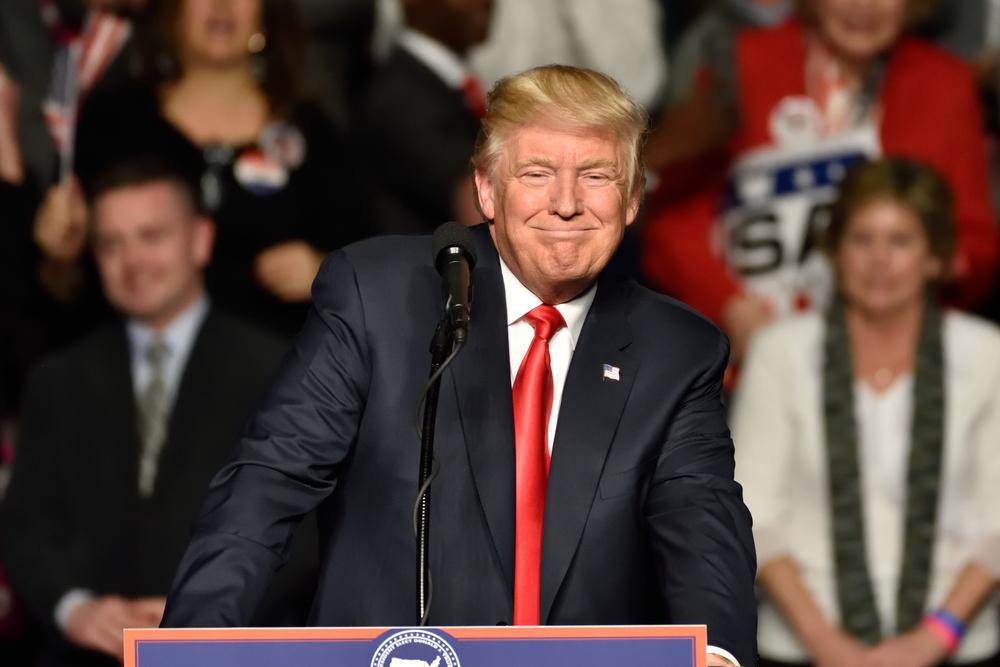Table Of Content
- Liz Cheney's Message to Supreme Court After Donald Trump Hearing
- Donald Trump says he would accept House speaker job, but a GOP lawmaker predicts he'll back Jim Jordan
- Trump Reveals Terms for Accepting Speaker of the House Role
- Speaker Johnson to meet with Trump, offers Marjorie Taylor Greene advisory role as own job teeters
- Get the latest from VICE News in your inbox. Sign up right here.

He soon eclipsed the party's leader, Robert Michel, who was nearing retirement. Johnson is the sixth Republican elevated to the speakership since 1994, the year the party won its first House majority and elected a speaker of its own for the first time in 40 years. The hard truth is that the five who preceded Johnson (McCarthy, Paul Ryan, John Boehner, Dennis Hastert and Newt Gingrich) all saw their time in the office end in relative degrees of defeat or frustration. And to find a Republican speaker who left voluntarily in a moment of victory, moving on to another office, you have to go back to the mid-1920s. But this time around several Democrats have indicated they would cross the aisle to support Johnson and frustrate Greene & Co. if it came to a vote. Democratic leaders have indicated they are open to this, and it essentially repeats the strategy that allowed Johnson to pass the Ukraine portion of the aid bill earlier this month.
Liz Cheney's Message to Supreme Court After Donald Trump Hearing
Greene had vowed to press her challenge after Johnson announced a strategy to pass $95 billion in aid to Ukraine, Israel and Taiwan earlier this month. About two-thirds of that money was for Ukraine, an issue Greene had called her "red line" for moving against the speaker. Just such a "motion to vacate the chair" was filed against Johnson in March by Rep. Marjorie Taylor Greene, R-Ga. But Greene has yet to make the motion "privileged," which under the rules would necessitate a vote within two days. Johnson faces opposition from rightwingers in his party, in particular from Marjorie Taylor Greene, a fervent Trump ally who has threatened to trigger a motion to vacate, the mechanism by which a speaker can be removed, and called for Johnson to quit. Last fall, it took Republicans almost a month to replace McCarthy with Johnson, a spectacle that put the party’s dysfunction on display in rounds of failed votes and essentially shut down all other House business.
Donald Trump says he would accept House speaker job, but a GOP lawmaker predicts he'll back Jim Jordan
For Republicans to put Trump in the speaker's chair, they have to retake control of the House in 2022. Since World War II, the president's party has lost an average of 26 seats in the House and Republicans only need to flip five seats to become the majority party, giving the GOP a good chance of controlling the House after the 2022 election. Some have also questioned whether Trump is legally allowed to take over the speakership. Former New York Assistant Attorney General Tristan Snell wrote on X that House Republicans' own rules require a leader to step aside if indicted for a felony of two-plus years of prison. Historically, the House of Representatives has always voted for a member of the lower chamber for the role of House Speaker, but there is nothing in the Constitution that states that the position must be filled by a member of Congress.
Trump Reveals Terms for Accepting Speaker of the House Role
And whoever the next speaker is would be subject to the same precariousness that saw McCarthy’s abrupt ejection. If Republicans couldn’t rally behind a permanent successor, Trump might also be in the awkward spot of staying on as speaker longer than anticipated. Even on his own proposed timeline – a “30, 60, or 90-day period” – he’d still need to negotiate real pieces of legislation. Although a non-member of the house has never served as speaker in the institution’s 234-year history, a speaker isn’t actually required to be a Congress member.
Trump says he's willing to be speaker for 'short period' if necessary - Spectrum News NY1
Trump says he's willing to be speaker for 'short period' if necessary.
Posted: Thu, 05 Oct 2023 07:00:00 GMT [source]
“The only candidate for Speaker I am currently supporting is President Donald J. Trump,” MAGA bomb-thrower Rep. Marjorie Taylor Greene of Georgia tweeted. The short answer is, yes, almost all experts agree that it’s technically possible. And he has a long, sharp memory — useful, if channeled constructively, for familiarizing himself with the ins and outs of a conference more than 200 members strong. I begrudgingly admit that Trump’s political strengths could suit him well for this role.
Greene has said that Johnson has thrown the Republican majority into “chaos,” pointing in particular to the government spending bills that he passed to prevent a federal shutdown over Republican objections. He led one of the main legal challenges to the 2020 election in the run-up to the Jan. 6, 2021, attack on the U.S. Capitol by the mob of Trump’s supporters trying to stop the certification of Democrat Joe Biden’s victory. “I inherited a budget deal made by my predecessor that was unchangeable,” Johnson told RealClearPolitics in an interview last week about the size of the government spending bills. He is a prolific fundraiser, an obvious asset to one of the key players in defending vulnerable incumbents and boosting competitive candidates in election years.
Prior to the GOP's 40-year sentence as the minority party, several of its speakers had risen to the top rung largely on their personal popularity among their colleagues. One was Joseph Martin of Massachusetts, who led the party in the House during two brief interludes of majority status after World War II. Both lasted only the minimum two years, the first ending with Democratic Harry S. Truman's surprise White House win in 1948. Martin was back four years later when Eisenhower was first elected president in 1952, but that tour at the top was cut short by his party's sharp losses two years later. The 30-year saga began with Gingrich of Georgia, who was the first member of his party to gain "the big gavel" since the early 1950s and the presidency of Dwight D. Eisenhower. Gingrich had been a backbench rabble-rouser since coming to the House in 1978 and built up a cadre of supporters until he won the party's No. 2 power position as minority whip in 1989.
Get the latest from VICE News in your inbox. Sign up right here.
With no clear successor, the risk of further acute embarrassment to the party, and a slew of legislative priorities on the docket, desperation may already be setting in. The role of House speaker has importance outside of Congress; that person is second in the presidential line of succession just behind the vice president. Replying to a post on X citing Hannity’s comment about the push for a Trump speakership, Rep. Sean Casten, D-Ill., shared a screenshot, saying, "I would direct your attention to rule 26(a) of the House Republican Conference rules for the 118th Congress." The former president also told Fox News Digital that he may travel to Washington, D.C., next week and meet with congressional Republicans about picking a new speaker of the House.
Could Trump take McCarthy's place as House speaker? Technically, yes, but don't count on it
Even if that threshold were to change to three members, or five, the blockade of opposition to Jordan this week has shown plenty of political will among centrist Republicans, enough to force a vote if Speaker Trump were to seriously step out of line. The American public wouldn’t have to wait around for the next presidential election, or for yet another doomed-to-fail impeachment. "A lot of people have been calling me about speaker," he said outside the New York City courthouse, where he faces a civil trial involving his business holdings. "All I can say is we will do whatever is best for the country and other Republican Party and people." Gingrich managed to restore many of the powers of the speakership but clashed repeatedly with Clinton and even with Republican leaders in the Senate.

The party settled on Ways and Means Chairman Paul Ryan of Wisconsin, who had not sought the gavel but agreed to take it. Like Johnson an era later, Hastert was a relatively quiet member of the leadership who enjoyed goodwill generally in the rank and file. Hastert was speaker through the last two Clinton years and first six of the George W. Bush presidency. But he voluntarily resigned after the GOP lost badly in the 2006 midterms, a defeat Bush called "a thumpin' " at the time.
But Greene told reporters she would “wait and see” about his offer, but she was more interested in how he handles several issues before Congress, particularly aid for Ukraine and the FISA vote. Just before the vote, Trump also weighed in on social media, telling Republicans to vote against it. Trump said the law was used to spy on him, but a former adviser to his 2016 presidential campaign was targeted over potential ties to Russia under a different section of the surveillance law. With a threadbare majority, Johnson can lose no more than one or so Republican on any vote, but nearly 20 bolted.
The speakership was vacated after eight Republicans and all House Democrats in attendance supported a motion to vacate on Tuesday, stripping Congressman Kevin McCarthy of House leadership. The chamber is scheduled to meet again Wednesday to begin voting on the next speaker, but with a fractured GOP majority, it remains unlikely that a decision will be made soon. Asked Wednesday about taking up the House gavel, Trump told reporters outside the Manhattan courtroom where he's facing a civil fraud trial, "All I can say is we'll do whatever's best for the country and for the Republican Party. Trump lost reelection to Democratic candidate Joe Biden, but publicly claimed widespread voter fraud had affected the outcome. Trump spoke to the large crowd on the Ellipse near the White House and encouraged attendees to protest the counting of the Electoral College votes in Congress. The rally turned violent when the president’s supporters overwhelmed law enforcement, breaching the United States Capitol and disrupting the vote count.
He also opposed legislation last year that would require states to recognize same sex marriages that were legal where they were performed. A constitutional lawyer and former member of the Louisiana state House, Johnson was first elected to the U.S. He is the first Louisianan to become speaker and the first Southerner to serve as speaker since Republican Newt Gingrich of Georgia in the 1990s. Politico reports – and the Times denies – changes in coverage due to ire over not getting a one-on-one interview with the president. There are lots of reasons why a Trump speakership is far-fetched in a real-world sense. In just one of those cases, involving documents he’s charged with keeping after his presidency, one Espionage Act charge alone carries a maximum sentence of 10 years.
The move was the latest example of Trump attempting to flex his influence within a Republican Party he has already fundamentally reshaped in the eight years since his first White House bid. "The idea for some that Donald Trump could become the speaker of the House is almost as frightening as the idea of him becoming president again," said Democratic strategist Karen Finney. "That will potentially advantage Democrats — again, just the fear of it, just the very thought of it." And then there's the appeal of State of the Union night, when he would get to stand behind Biden, just like the current House speaker, Nancy Pelosi, D-Calif., stood behind Trump when he was president. "Can you just imagine Nancy Pelosi having to hand that gavel to Donald J. Trump?" mused Rep. Matt Gaetz, R-Fla., a vocal Trump loyalist, when he spoke to a crowd in Iowa this summer. "She didn't like when that Jan. 6 guy was sitting in her chair in her office. She is sure not going to like seeing Donald Trump sitting in her chair."









